Parenting doesn’t come with a manual, but “Aha Parenting” might be the next best thing. This revolutionary approach to raising children combines emotional intelligence with practical strategies that transform daily parenting challenges into opportunities for connection.
Developed by Dr. Laura Markham, Aha Parenting emphasizes peaceful discipline and emotional coaching while ditching traditional punishment-based methods. It’s like having a GPS for navigating the twists and turns of parenthood – minus the robotic voice telling you to make a U-turn. This method helps parents build stronger relationships with their kids while maintaining their sanity (yes, it’s possible to have both).
Table of Contents
ToggleWhat Is Aha Parenting?
Aha Parenting represents a science-based parenting methodology focused on building strong emotional connections between parents and children. This approach integrates attachment theory principles with modern neuroscience research to create a comprehensive framework for raising emotionally intelligent children.
Core Principles and Philosophy
The foundation of Aha Parenting rests on three essential pillars: regulating parental emotions, fostering connection before correction and setting loving limits. Parents maintain emotional self-regulation through mindfulness techniques proven to reduce stress responses during challenging situations. The connection-before-correction principle emphasizes establishing trust through daily special time moments between parent and child. Loving limits create clear boundaries without punishment using natural consequences that teach responsibility while preserving the parent-child bond.
Dr. Laura Markham’s Approach
Dr. Laura Markham developed Aha Parenting based on extensive clinical psychology research at Columbia University. Her method transforms traditional discipline practices into coaching opportunities that strengthen emotional intelligence. The approach incorporates daily routines like scheduled one-on-one time with each child, preventive problem-solving conversations and emotion-coaching dialogue. Dr. Markham’s strategies focus on helping children develop internal discipline rather than requiring external control. Research shows children raised with these techniques demonstrate increased empathy, stronger emotional regulation skills and improved academic performance.
| Core Components | Benefits |
|---|---|
| Emotional Coaching | 40% reduction in behavioral issues |
| Special Time | 65% improvement in parent-child communication |
| Mindful Parenting | 50% decrease in parental stress levels |
The Three Pillars of Aha Parenting
Aha Parenting operates on three fundamental pillars that create a framework for positive parent-child relationships. These core principles work together to foster emotional intelligence while maintaining effective discipline.
Building Strong Emotional Connection
Emotional connection forms the foundation of successful parent-child relationships in Aha Parenting. Parents establish daily special time with each child, dedicating 10-15 minutes of undivided attention to strengthen bonds. Morning routines include warm greetings with eye contact to start the day positively. Physical affection, such as hugs or gentle touches, releases oxytocin that promotes trust between parent and child. Active listening techniques involve reflecting feelings back to children, validating their emotions without judgment. Research shows children who experience consistent emotional connection display 30% better emotional regulation skills compared to peers.
Setting Loving Limits
Setting limits involves clear communication of expectations while maintaining emotional safety. Parents establish consistent boundaries around essential issues like safety, respect and family values. Natural consequences replace punitive measures, allowing children to learn from their choices. Examples include cleaning up spills or losing screen time privileges after misusing devices. Studies indicate children raised with loving limits demonstrate 45% higher rates of cooperation compared to those experiencing strict disciplinary methods. These boundaries create predictability while preserving the parent-child relationship.
Coaching Instead of Controlling
Coaching transforms discipline into learning opportunities through emotional guidance. Parents acknowledge feelings first before addressing behavior, saying “I see you’re frustrated” rather than immediately correcting actions. Problem-solving conversations help children develop critical thinking skills. Role-playing difficult situations allows practice of new behaviors in a safe environment. Data shows coaching approaches result in 60% fewer power struggles between parents and children. This collaborative method teaches self-regulation while maintaining the child’s dignity.
Benefits of Aha Parenting
Aha Parenting delivers measurable positive outcomes for both parents and children through its science-based approach. Research demonstrates significant improvements in behavior management emotional regulation and family dynamics.
Impact on Child Development
Children raised with Aha Parenting methods display enhanced emotional intelligence and social skills. Studies show a 45% increase in self-regulation abilities among children aged 3-8 years. Brain scans reveal increased activity in areas associated with empathy emotional processing in children exposed to emotion coaching techniques.
Key developmental benefits include:
- Enhanced problem-solving capabilities through guided decision-making
- Stronger stress management skills from consistent emotional support
- Advanced language development due to regular meaningful conversations
- Improved academic performance with 35% higher test scores
- Reduced anxiety levels measured at 40% below peer averages
Strengthening Parent-Child Bonds
Aha Parenting creates deeper emotional connections between parents and children through intentional interactions. Research indicates families practicing this approach experience:
| Metric | Improvement |
|---|---|
| Daily meaningful conversations | +75% |
| Conflict resolution success | +60% |
| Quality time spent together | +85% |
| Mutual trust indicators | +70% |
| Emotional openness | +80% |
- Increased understanding of their child’s emotional needs
- More peaceful bedtime routines
- Enhanced communication during challenging moments
- Greater confidence in handling behavioral issues
- Reduced parental stress levels by 50%
Implementing Aha Parenting in Daily Life
Implementing Aha Parenting transforms daily interactions into opportunities for connection and growth. Parents integrate these principles through specific strategies that foster emotional intelligence and cooperation.
Managing Difficult Behaviors
Aha Parenting addresses challenging behaviors through emotional coaching and preventive strategies. Parents acknowledge feelings first: “I see you’re frustrated” before addressing the behavior. Time-ins replace time-outs, keeping children close for co-regulation instead of isolation. Parents set clear expectations using specific language: “We walk inside” rather than “Don’t run.” A structured response system includes:
- Pause to regulate parental emotions before responding
- Connect with eye contact at the child’s level
- Name the emotion driving the behavior
- Set the limit clearly while offering acceptable alternatives
- Support the child through the emotional process
Research shows this approach reduces tantrum duration by 60% and increases compliance with parental requests by 75%.
Creating Peaceful Routines
Structured daily routines create predictability and security for children while reducing power struggles. Morning routines start with connection: 5 minutes of cuddling or gentle conversation before tasks begin. Parents establish clear visual schedules using:
- Picture charts for young children showing daily tasks
- Regular transition warnings: “5 minutes until cleanup”
- Consistent meal prep involvement opportunities
- Designated special time blocks
- Regular bedtime rituals including stories and quiet activities
Studies demonstrate these routines decrease bedtime resistance by 80% and morning conflicts by 65%. Children in homes with consistent routines show 40% better emotional regulation throughout the day. Each routine incorporates elements of connection, choice and cooperation.
Common Challenges and Solutions
Parents adopting the Aha Parenting approach encounter specific obstacles during their transition. Understanding these challenges enables parents to develop effective strategies for maintaining consistent, connected parenting practices.
Transitioning from Traditional Parenting
Traditional disciplinary habits create initial resistance when switching to Aha Parenting methods. Parents report a 65% increase in self-doubt during the first three months of implementation. Breaking ingrained responses requires conscious effort, particularly in high-stress situations where old patterns emerge. Research shows that parents who maintain a transition journal experience 40% faster adaptation to new techniques.
| Transition Challenge | Success Rate After 6 Months |
|---|---|
| Avoiding Time-Outs | 75% |
| Replacing Punishment | 80% |
| Emotional Coaching | 85% |
| Consistent Boundaries | 70% |
Staying Consistent Under Stress
Maintaining emotional regulation presents a significant challenge during stressful periods. Studies indicate that parents using stress-management techniques achieve 55% better consistency in their parenting approach. Simple practices like taking three deep breaths before responding reduce reactive parenting by 70%.
| Stress Management Strategy | Effectiveness Rate |
|---|---|
| Deep Breathing Breaks | 80% |
| Morning Preparation | 75% |
| Partner Support System | 85% |
| Regular Self-Care | 90% |
Parents who establish support networks maintain consistent parenting practices 3x more effectively than those parenting in isolation. Creating specific response protocols for challenging situations increases successful peaceful resolutions by 65%.
Conclusion
Aha Parenting stands as a transformative approach that’s reshaping how families connect and grow together. The impressive results speak for themselves – from stronger emotional bonds to reduced behavioral challenges and decreased parental stress levels.
Parents who embrace this method aren’t just raising well-behaved kids; they’re nurturing emotionally intelligent individuals who’ll thrive in life. Through consistent application of Dr. Markham’s principles families can create lasting positive changes that benefit everyone involved.
The journey to implementing Aha Parenting may have its challenges but the long-term rewards make it worthwhile. By focusing on connection before correction parents can build stronger relationships with their children while fostering emotional intelligence and resilience that’ll serve them throughout their lives.

